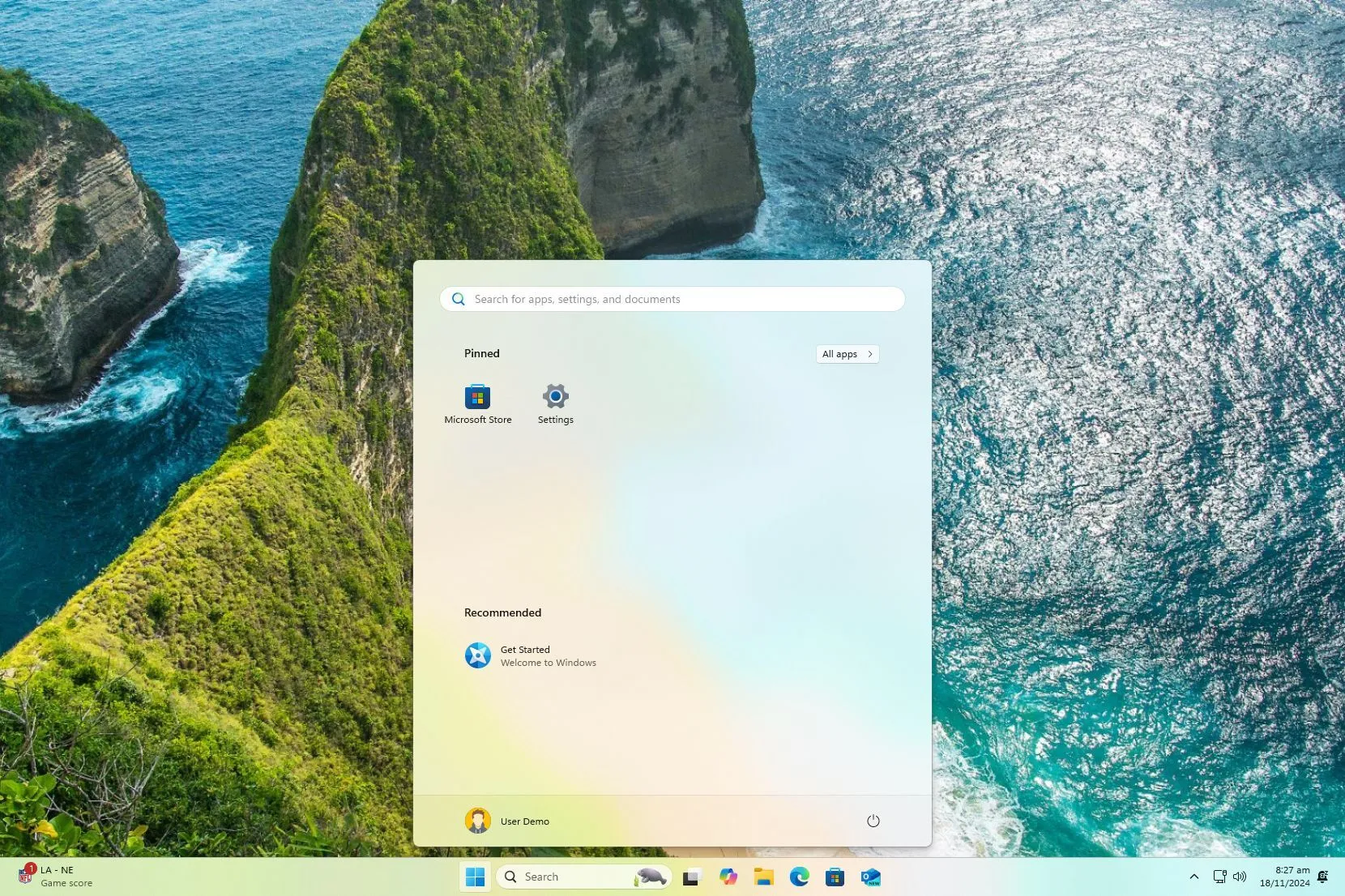- To install Windows 11 without bloatware, launch the setup from a USB bootable media, choose the “English (World)” or “English (Europe)” option from the “Time and Currency format” setting, and continue with the on-screen directions as normal to complete the clean install.
- Once on the desktop, you will have to choose the correct language and region settings from the Settings app.
UPDATED 11/18/2024: On Windows 11, you can use a workaround to install the operating system without third-party apps, and in this guide, you will learn how. When you perform a clean installation of Windows 11, in addition to the operating system, the wizard also installs promotional apps from Microsoft partners, such as Facebook and Instagram, Netflix, Twitter, Disney, ESPN, Spotify, and many others.
Although these are simple links to promote services, they can clutter the Start menu with apps you probably will never use. Usually, after the installation, you can remove these bloatware apps from the Settings app or use the “Uninstall” option from the Start menu, but there is a trick you can use during the initial setup to prevent the setup from adding those apps.
However, it’s important to note that this method will not stop the setup from installing Microsoft apps such as Calculator, Outlook, Microsoft Edge, and others.
In this guide, I will teach you the steps to perform a fresh installation of Windows 11 without bloatware.
Install Windows 11 without bloatware
To install Windows 11 without bloatware, use these steps:
-
Start the PC with the Windows 11 USB flash drive.
-
Press any key to continue.
-
Choose the “English (World)” or “English (Europe)” option from the “Time and Currency format” setting.
Quick note: This is the setting that will make it possible to install the operating system without third-party applications. If you have another language requirement, remember to choose the correct “(World)” option for your location.
-
Choose the installation language for the operating system.
-
Click the Next button.
-
Click the Next button.
-
Select the “Install Windows 11” button.
-
Check the “I agree everything will be deleted including files, app, and settings” option.
-
Click the Next button.
-
Click the “I don’t have a product key” option.
Quick note: If the device never included a Windows 11 installation, you will have to provide a product key after the installation.
-
Select the edition of “Windows 11” that your license key activates (if applicable).
-
Check the “I accept the license terms” option.
-
Click the Next button.
-
Select each partition on the hard drive where you want to install Windows 11 and click the Delete button. (Typically, “Drive 0” is the drive that contains all the installation files.)
Warning: When you delete a partition, it also deletes all data on the drive. Also, it is not required to delete the partitions from a secondary hard drive.
-
Select the hard drive (Drive 0 Unallocated Space) to install Windows 11.
-
Click the Next button.
-
Click the Install button.
-
Click the Skip option on the “Something went wrong” error page.
-
Select your keyboard layout setting.
-
Click the Yes button.
-
Click the Skip button if you do not need to configure a second layout.
-
If the computer uses an Ethernet connection, it will automatically connect to the network. If you have a wireless connection, you must set it up manually (a security key may be required).
-
(Optional) Confirm a name for the computer.
-
Click the Next button. (The device will restart automatically.)
-
If you are configuring Windows 11 Pro, select the “Set up for personal use” option. This option is not available in the “Home” edition.
-
Click the Next button.
-
Click the Sign in button.
-
Confirm your Microsoft account to create an account.
-
Click the Next button.
-
Click the Create PIN button.
-
Create a new four-digit PIN.
-
Click the OK button.
-
Turn on or off the toggle switch for each privacy setting to confirm the one that best suits your situation.
-
Click the Next button.
-
Click the Next button again.
-
Click the Accept button.
-
Click on “More options.”
-
Choose the “Set up a new device” option.
-
Click the “Set up as a new PC option” again.
-
(Optional) On the “Let’s customize your experience” page, select one or more ways you plan to use the device to allow the setup to suggest tools and service customizations during this experience.
-
Click the Accept button to continue. Or click the Skip button to skip this part of the setup.
-
Click the Skip button for the Android phone link process.
-
Click the Skip button to skip the backup of your phone with OneDrive.
-
Click the Not now option to skip the Microsoft Edge setup.
-
Open Settings after the setup is complete.
-
Click on Time & language.
-
Click the Language & region tab.
-
Choose the country from the “Country or region” setting under the “Region” section.
-
Choose the Recommended option for the “Reginal format” setting.
Once you complete the steps, you can start using Windows 11 without annoying third-party applications in your correct language and region.
Update November 18, 2024: This guide has been updated to ensure accuracy and reflect changes to the process.
Why You Can Trust Pureinfotech
The author combines expert insights with user-centric guidance, rigorously researching and testing to ensure you receive trustworthy, easy-to-follow tech guides. Review the publishing process.
Source link
